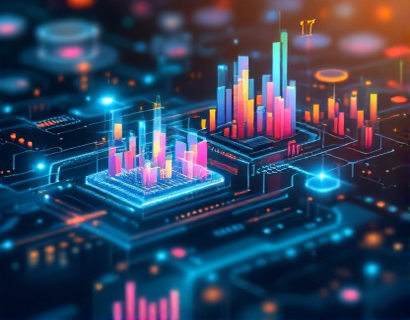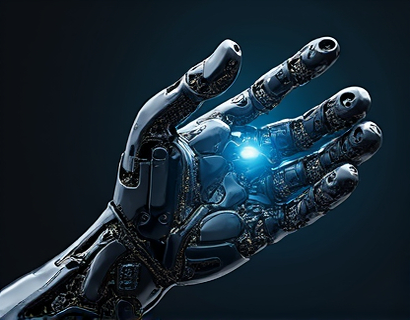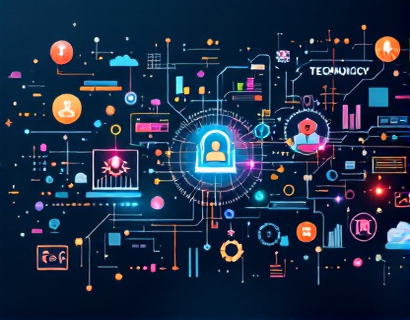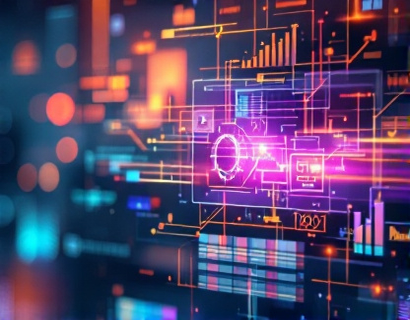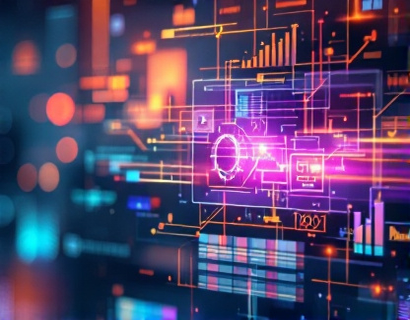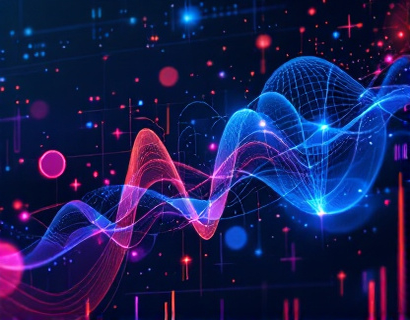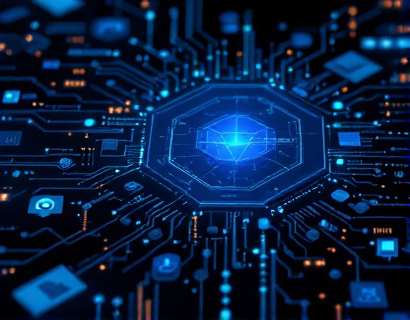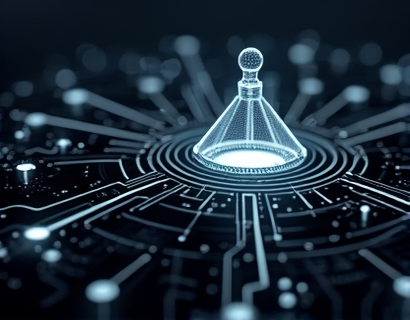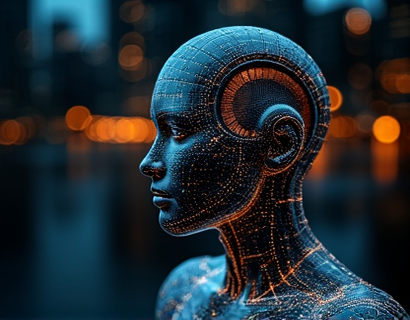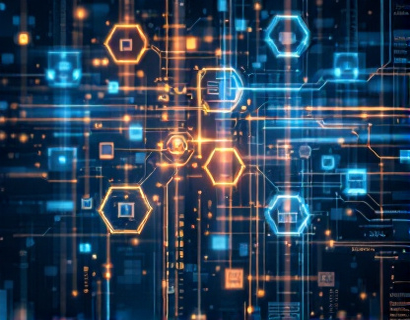Crypto and AI Innovations: Revolutionizing Digital Experiences with Next-Gen Solutions
The intersection of cryptocurrency and artificial intelligence (AI) is giving rise to a new era of digital innovation, transforming the way we interact with apps and services. This convergence is not just a technological curiosity but a fundamental shift in how digital experiences are designed, delivered, and consumed. As we delve into the latest advancements in crypto and AI-driven solutions, it becomes clear that these technologies are poised to redefine the landscape of digital services, offering unprecedented levels of security, efficiency, and personalization.
Evolving Security Measures
One of the most significant impacts of integrating AI with cryptocurrency is the enhancement of security protocols. Traditional security methods often fall short in the face of sophisticated cyber threats. AI-driven solutions, however, can analyze vast amounts of data in real-time to detect and mitigate potential security breaches. Machine learning algorithms can identify patterns and anomalies that human analysts might miss, providing a more robust defense against cyber attacks. This is particularly crucial in the crypto space, where the value of digital assets makes them prime targets for hackers.
Blockchain technology, the backbone of cryptocurrencies, inherently offers a high level of security through its decentralized and immutable ledger. When AI is integrated into blockchain systems, the security is further fortified. AI can monitor blockchain networks continuously, adapting to new threats and ensuring that transactions remain secure and transparent. This synergy between AI and blockchain not only protects user assets but also builds trust in the digital economy.
Enhanced User Personalization
AI's ability to process and analyze large datasets makes it an invaluable tool for personalizing user experiences. In the context of crypto and digital services, this means tailored recommendations, customized interfaces, and personalized financial insights. For instance, AI algorithms can analyze a user's transaction history, investment preferences, and risk tolerance to suggest optimal crypto assets and strategies. This level of personalization not only enhances user satisfaction but also increases the effectiveness of financial advice and investment decisions.
Moreover, AI-driven chatbots and virtual assistants can provide 24/7 support, answering user queries and guiding them through complex processes with ease. These AI-powered tools can understand natural language, recognize user intent, and respond with relevant information, making the user experience seamless and intuitive. As these technologies continue to evolve, we can expect even more sophisticated and human-like interactions with digital services.
Optimized Trading and Investment Platforms
The trading and investment landscape is being revolutionized by the combination of AI and cryptocurrency. AI algorithms can process market data, news feeds, and social media sentiment in real-time to predict price movements and identify trading opportunities. These algorithms can execute trades at optimal times, minimizing human error and maximizing profits. For individual investors, this means access to professional-level trading tools and strategies that were once only available to large institutions.
Decentralized finance (DeFi) platforms are also leveraging AI to create more efficient and accessible financial services. AI-driven DeFi protocols can automate complex financial operations, such as lending, borrowing, and yield farming, with minimal human intervention. This not only reduces costs but also increases the speed and reliability of financial transactions. As more users adopt these AI-enhanced platforms, the democratization of finance continues to gain momentum.
Smart Contracts and Automated Agreements
Smart contracts, self-executing contracts with the terms directly written into code, are another area where AI is making significant strides. AI can enhance smart contracts by adding layers of intelligence and adaptability. For example, AI can analyze external data sources to trigger contract actions based on real-world conditions, rather than predefined rules alone. This flexibility makes smart contracts more versatile and applicable to a wider range of scenarios.
In the realm of supply chain management, AI-powered smart contracts can ensure that transactions are executed only when specific conditions are met, such as the arrival of goods or the completion of a service. This reduces the risk of fraud and errors, streamlining operations and improving trust among parties. As AI continues to evolve, the potential applications of smart contracts in various industries will only expand.
Innovative User Authentication
User authentication is a critical aspect of digital security, and AI is transforming this process through biometric and behavioral analytics. AI-driven systems can recognize users based on unique biological characteristics, such as facial recognition, voice patterns, and even typing rhythms. This multi-factor authentication approach provides a higher level of security compared to traditional password-based systems.
Behavioral biometrics, another AI-powered authentication method, analyzes user behavior to verify identity. By monitoring how a user interacts with a device or application, the system can detect anomalies and prevent unauthorized access. This not only enhances security but also improves the user experience by eliminating the need to remember complex passwords or go through cumbersome verification processes.
Predictive Maintenance and Reliability
In the world of decentralized applications and infrastructure, reliability is paramount. AI can play a crucial role in predictive maintenance, identifying potential issues before they become critical. By analyzing data from sensors and other sources, AI algorithms can predict when hardware or software components are likely to fail, allowing for proactive maintenance. This ensures that digital services remain uptime and available, reducing downtime and enhancing user trust.
For blockchain networks, which rely on a network of nodes to function, AI can monitor the health and performance of these nodes. AI-driven systems can detect underperforming or malicious nodes and take corrective actions, maintaining the integrity and efficiency of the network. This level of proactive management is essential for the scalability and reliability of blockchain-based solutions.
Enhanced Data Analytics and Insights
AI's strength lies in its ability to extract valuable insights from vast amounts of data. In the context of crypto and digital services, this means deeper analytics and more actionable insights for users and businesses alike. AI can process transaction data, market trends, and user behavior to provide comprehensive reports and forecasts. These insights can inform strategic decisions, optimize operations, and identify new opportunities.
For businesses leveraging blockchain and crypto, AI-driven analytics can help track the performance of their digital assets, monitor market sentiment, and assess the effectiveness of their marketing strategies. This data-driven approach enables more informed and precise decision-making, giving businesses a competitive edge in the rapidly evolving digital landscape.
Future Prospects and Challenges
The convergence of AI and cryptocurrency holds immense potential, but it also comes with challenges. One of the primary concerns is regulatory compliance. As governments around the world begin to recognize and regulate crypto assets, ensuring that AI-driven solutions adhere to legal standards is crucial. Developers and businesses must stay informed about regulatory changes and design their systems to be compliant.
Another challenge is the ethical use of AI. As AI systems become more autonomous, questions about accountability, bias, and transparency arise. It is essential to develop AI with ethical considerations in mind, ensuring that these technologies benefit society as a whole. Collaboration between technologists, policymakers, and ethicists will be key in addressing these challenges.
Looking ahead, the integration of AI and cryptocurrency is likely to lead to even more innovative solutions. The development of decentralized AI models, where AI algorithms run on blockchain networks, could further enhance security and transparency. Additionally, the rise of quantum computing presents both opportunities and challenges, as it could potentially break current cryptographic methods but also enable new forms of secure communication.
In conclusion, the fusion of AI and cryptocurrency is driving a new wave of digital innovation, offering enhanced security, personalization, and efficiency. As these technologies continue to evolve, they will shape the future of digital services, providing users with more secure, intuitive, and powerful tools. For tech enthusiasts and professionals, staying informed about these advancements is essential for navigating and thriving in the next generation of digital experiences.






